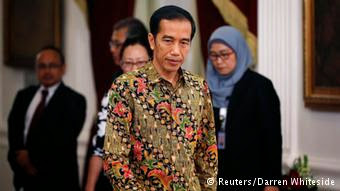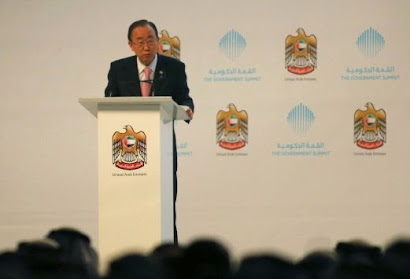Communal
tension in the Indonesian city of Kupang is reminiscent of the religious
conflict that gripped the country in the late 90's. But what is different this
time is that the young people are speaking out against it.
Charlie,
whose real name is Carolus Loli, is one of the founders of the Peacemaker
Community of Kupang (KOMPAK). KOMPAK is a civil society group whose objective
is to promote solidarity and peace in Kupang, the provincial capital of the
East Nusa Tenggara province in southeast Indonesia.
Founded in
February 2011, KOMPAK is still in its infancy. "The group has grown
fast," Charlie told DW. "Today, we have 10 members, tomorrow there
will be 12. KOMPAK grows by word of mouth."
 |
| Former President Suharto's last years in power were tumultuous |
The youth
group started off with 16 people - four from each of the four major religions
practiced in Kupang - Catholicism, Protestantism, Islam and Hinduism. Charlie
said their objective was to promote human rights and peace. KOMPAK, he
insisted, was open to everyone, irrespective of their religious affiliations.
Not again
Like most
Indonesian cities with a majority Christian population, Kupang too suffered a
great deal in widespread communal riots in the 1990s during the last years of
Suharto's rule. The devastation caused by the riots still haunts the people of
Kupang. And they don't want to experience it again.
Kupang is
predominantly Protestant, but most of the region has a Catholic majority. There
are several mosques and Hindu temples in the city as well.
Pastor
Helmy Sailana, another founding member of KOMPAK, told DW that he had visited
several mosques, churches and temples, and everyone, he said, wanted peace in
Kupang.
Right to
worship
One of the
main triggers of the new protests was related to the construction of mosques in
the city. Such permits for the construction of mosques are difficult to get in
Kupang - something radical Muslim groups have been protesting.
 |
| Most Indonesians are against communal violence |
To resolve
the conflict, KOMPAK offers its services to help Muslim communities get mosque
permits.
"Every
community has the right to worship," said Sailana, who believed the
conflict in the late 1990s was also caused by similar provocations.
Countrywide
peace building
KOMPAK is
attracting many students. The group regularly organizes inter-religious
seminars and workshops in schools and universities where it discusses ideas for
peace building in Kupang and the rest of Indonesia. Last year, KOMPAK joined a
network of Indonesian peace groups and began to work closely with them to
promote nationwide tolerance.
Author: Edith Koesoemawiria
Editor: Shamil Shams














